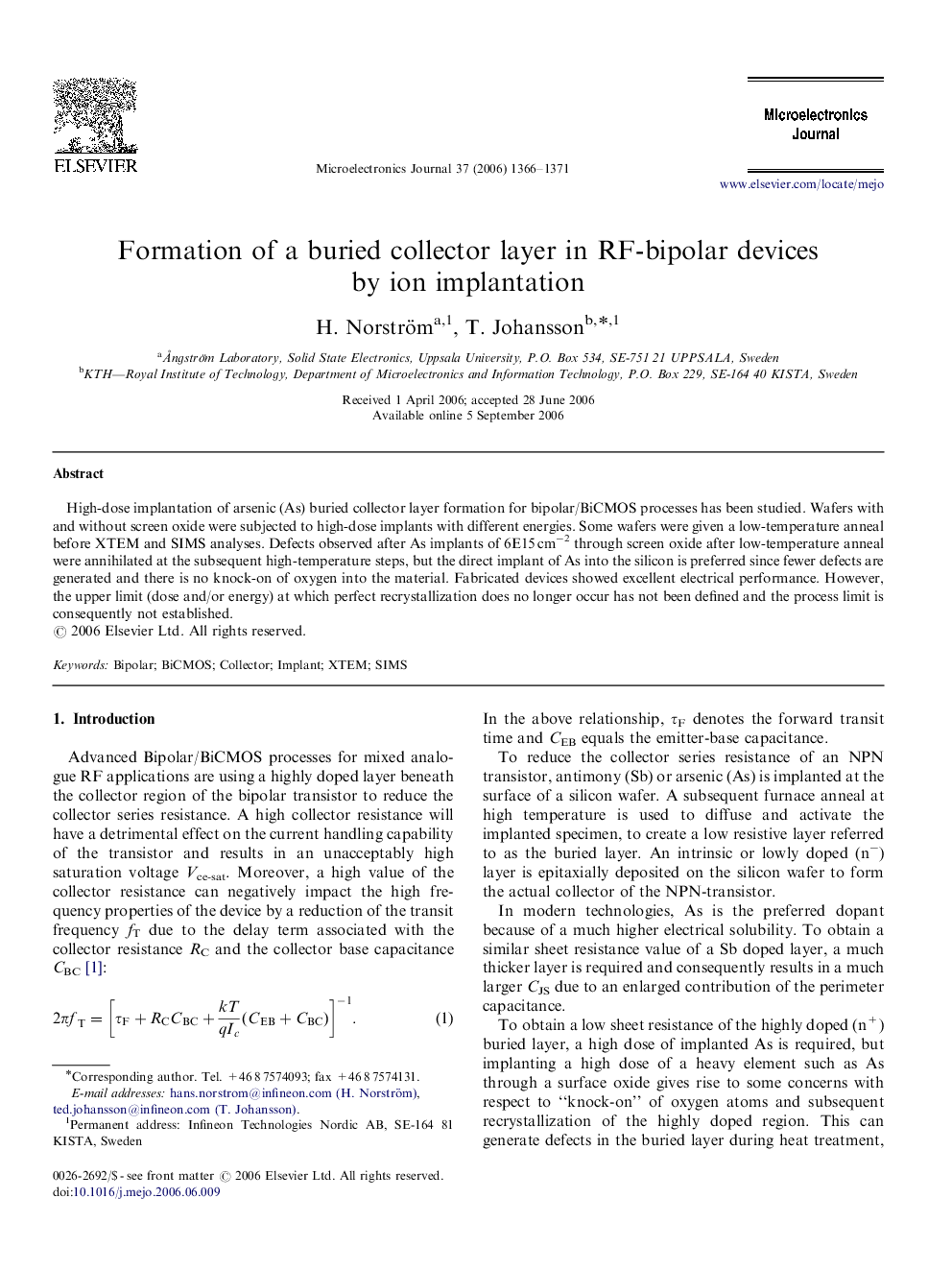| Article ID | Journal | Published Year | Pages | File Type |
|---|---|---|---|---|
| 542727 | Microelectronics Journal | 2006 | 6 Pages |
Abstract
High-dose implantation of arsenic (As) buried collector layer formation for bipolar/BiCMOS processes has been studied. Wafers with and without screen oxide were subjected to high-dose implants with different energies. Some wafers were given a low-temperature anneal before XTEM and SIMS analyses. Defects observed after As implants of 6E15Â cmâ2 through screen oxide after low-temperature anneal were annihilated at the subsequent high-temperature steps, but the direct implant of As into the silicon is preferred since fewer defects are generated and there is no knock-on of oxygen into the material. Fabricated devices showed excellent electrical performance. However, the upper limit (dose and/or energy) at which perfect recrystallization does no longer occur has not been defined and the process limit is consequently not established.
Related Topics
Physical Sciences and Engineering
Computer Science
Hardware and Architecture
Authors
H. Norström, T. Johansson,
